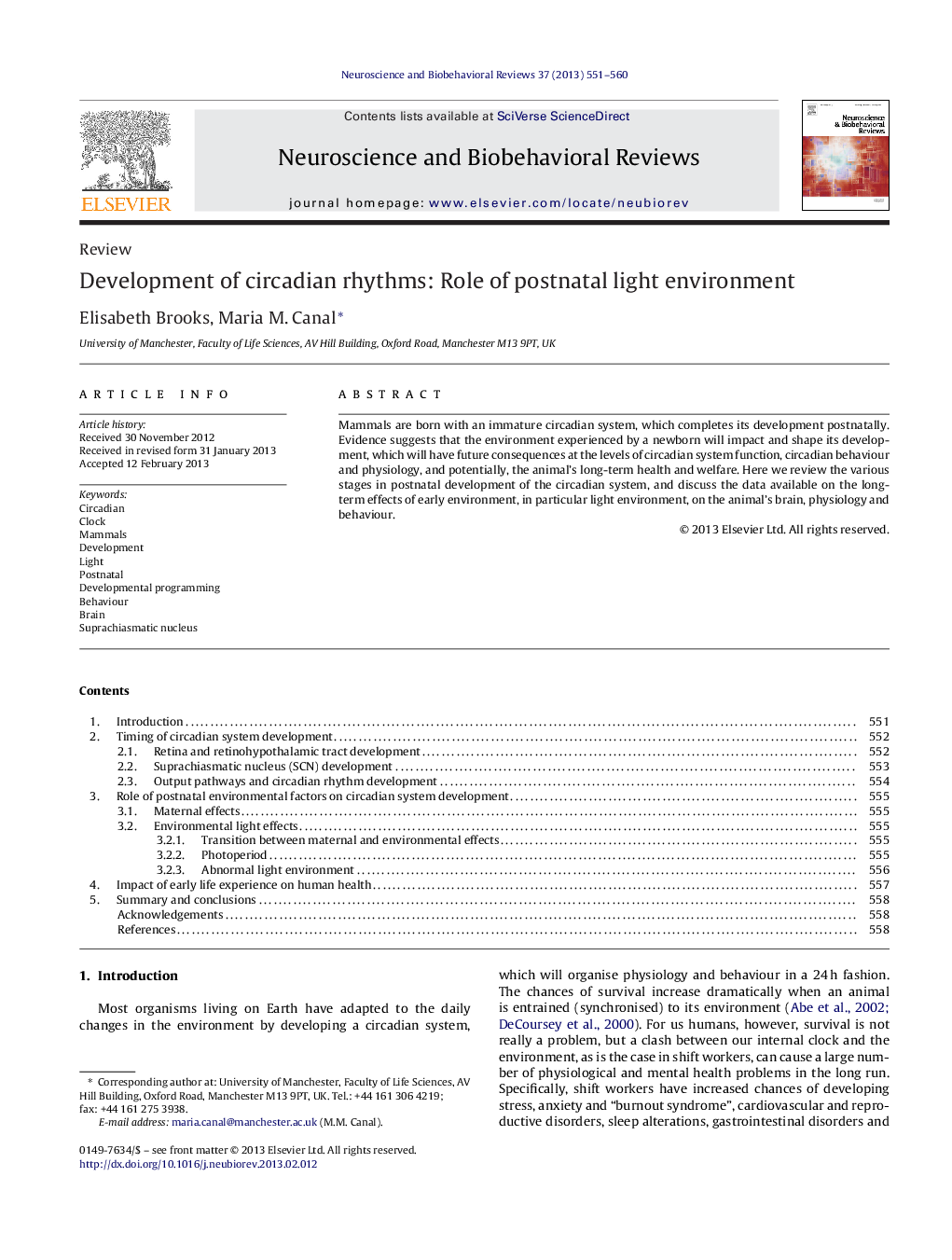| Article ID | Journal | Published Year | Pages | File Type |
|---|---|---|---|---|
| 937488 | Neuroscience & Biobehavioral Reviews | 2013 | 10 Pages |
Mammals are born with an immature circadian system, which completes its development postnatally. Evidence suggests that the environment experienced by a newborn will impact and shape its development, which will have future consequences at the levels of circadian system function, circadian behaviour and physiology, and potentially, the animal's long-term health and welfare. Here we review the various stages in postnatal development of the circadian system, and discuss the data available on the long-term effects of early environment, in particular light environment, on the animal's brain, physiology and behaviour.
Graphical abstractFigure optionsDownload full-size imageDownload as PowerPoint slideHighlights► The mammalian circadian clock undergoes critical developmental changes after birth. ► Postnatal environment exerts key programming effects on the developing clock. ► Early environmental light effects on behaviour are long-lasting. ► Postnatal light-induced changes in circadian behaviour have a brain origin. ► Postnatal light-induced changes may impact the individual's future health.
